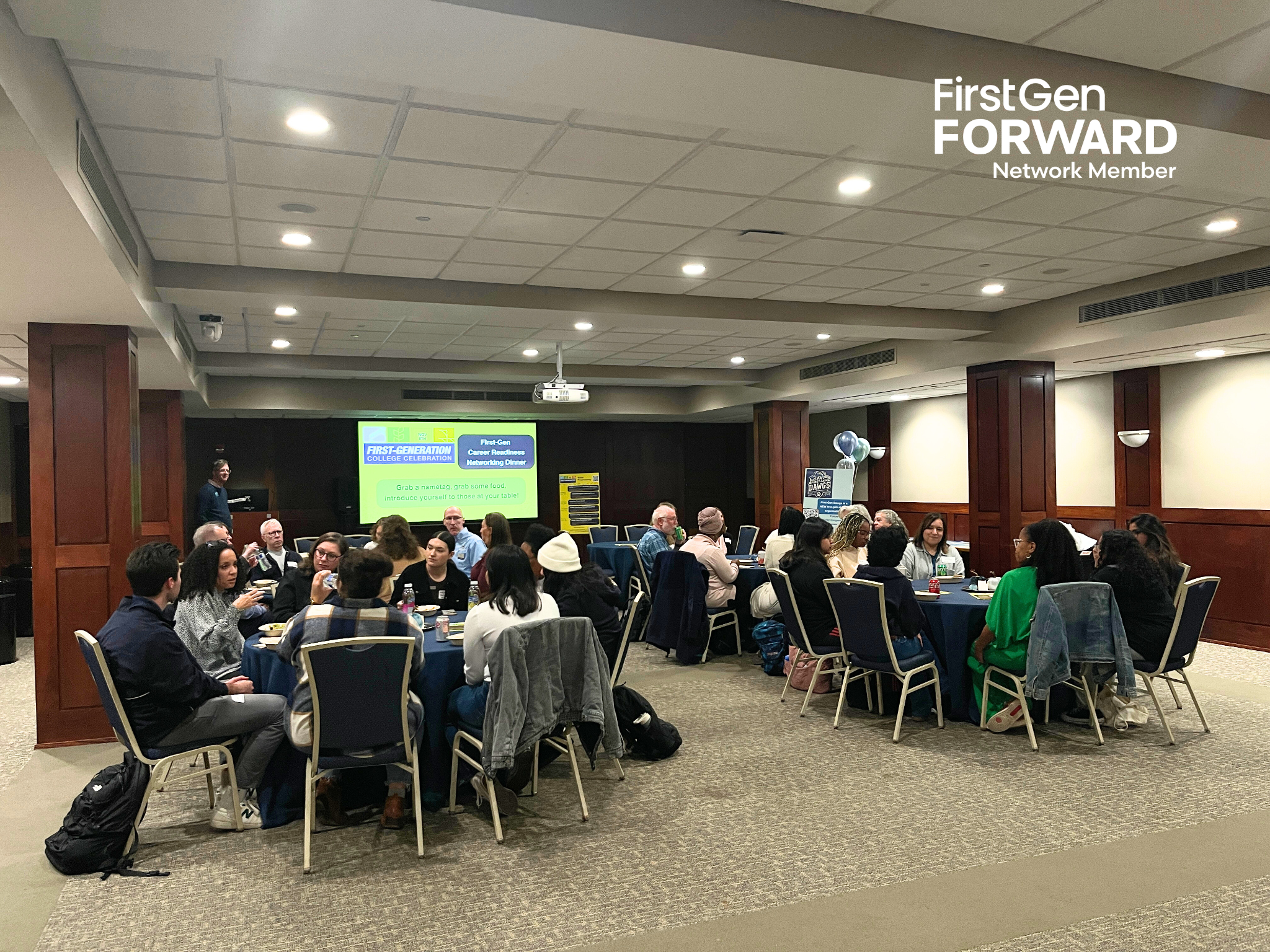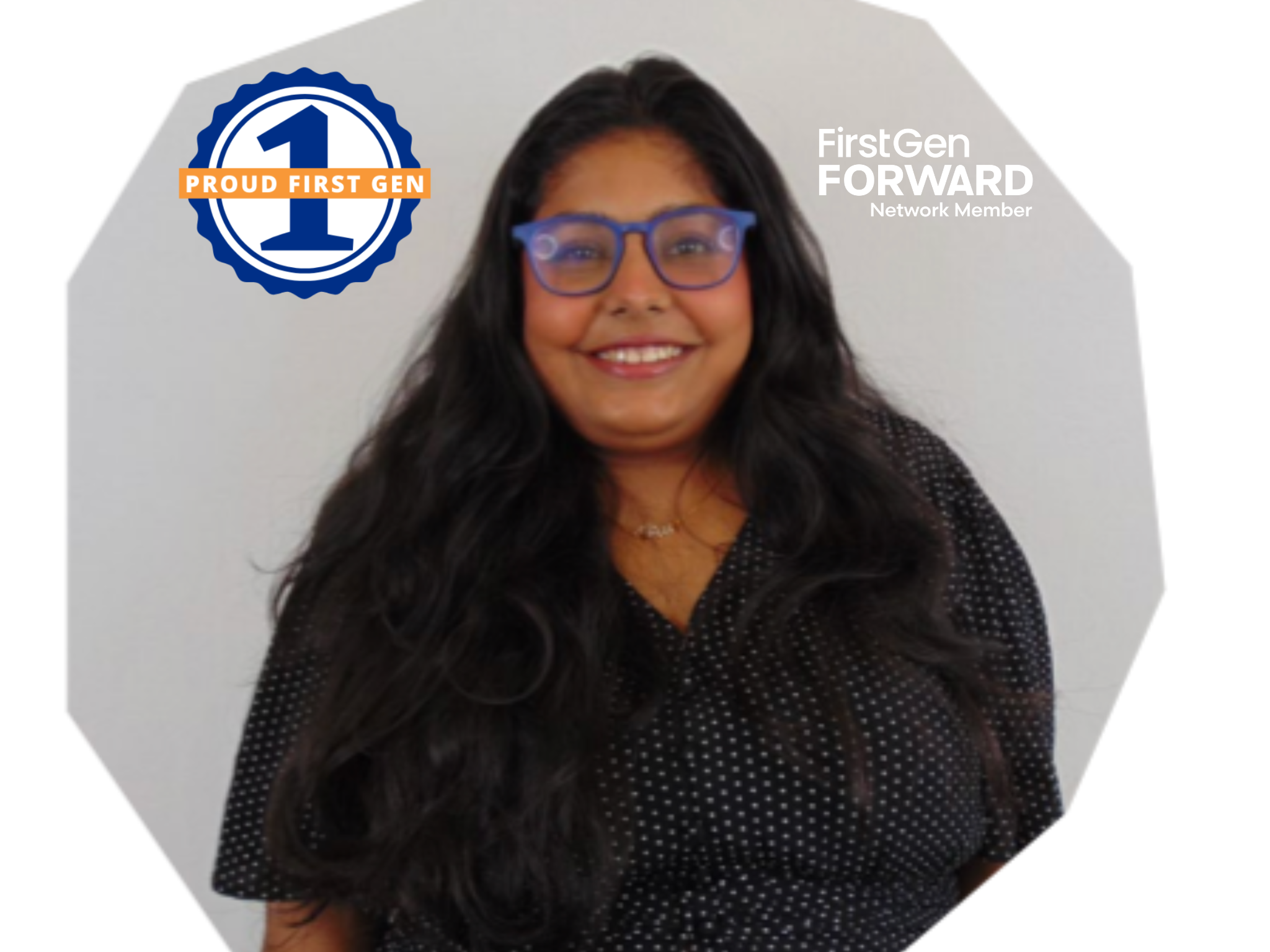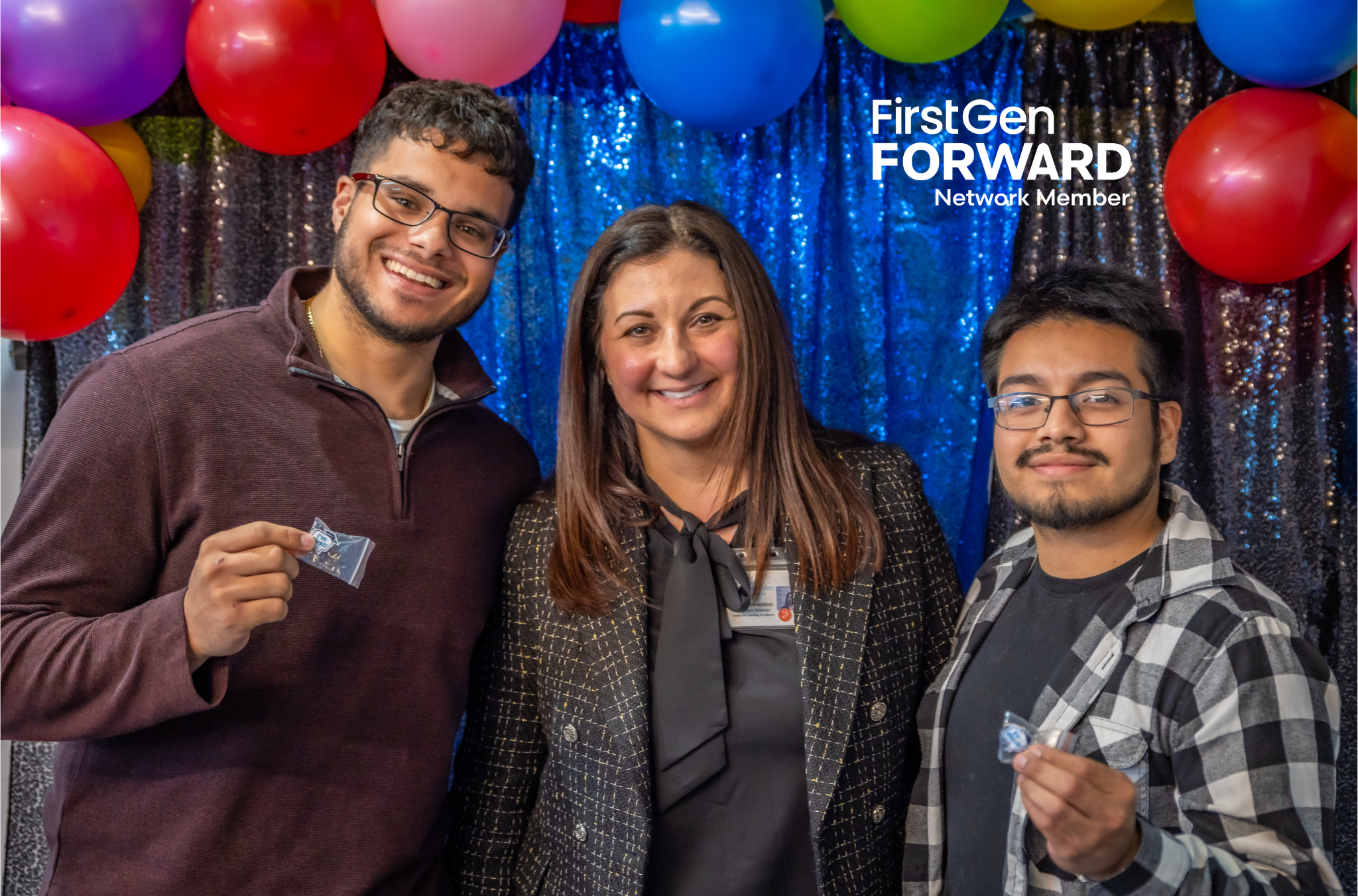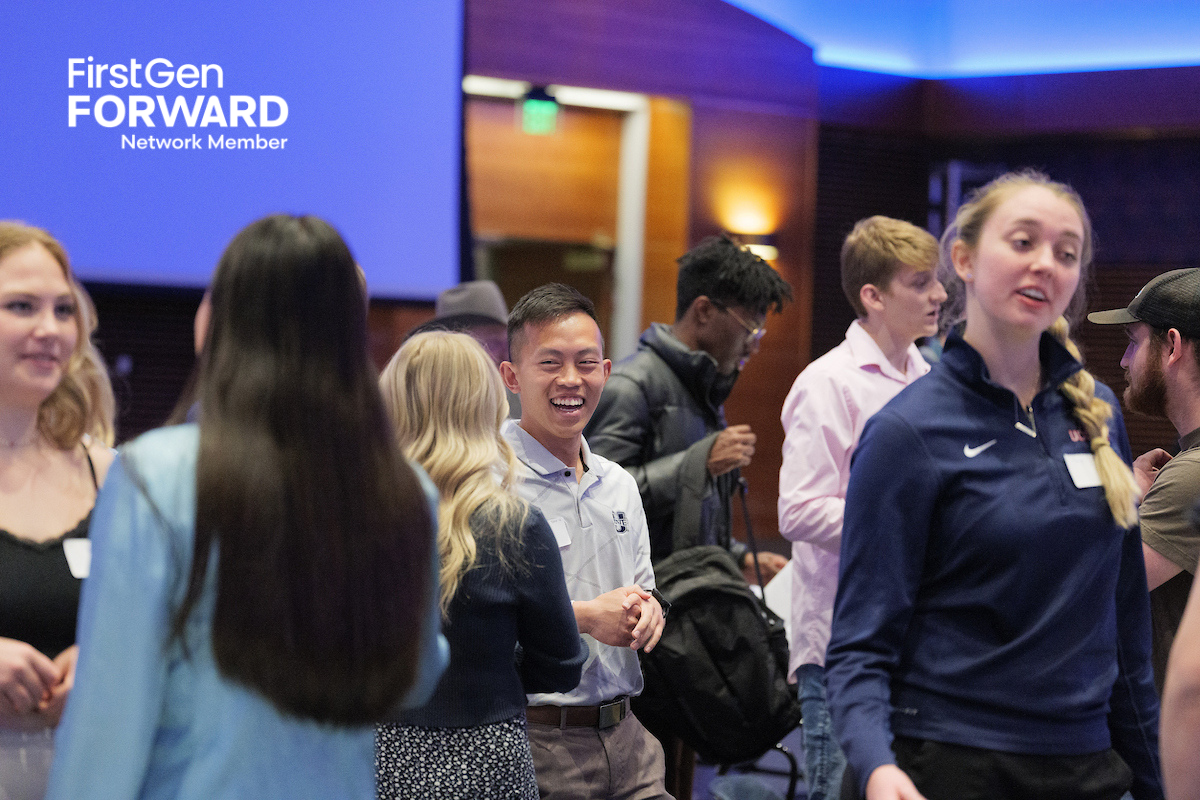“It was so cool to see so many faculty and staff show up and really invest in meeting first-gen students, giving us advice, and offering to mentor us. We left that night knowing we had people in our corner; people who’ve been in our shoes and actually get what it’s like.” Madison Evans ‘27, President of First-Gen Dawgs
Madison excitedly reflected upon the Career Readiness Networking Dinner, a featured program hosted during First-Generation College Celebration Week in November 2024 at Butler University. In Fall 2023, former Vice President for Student Affairs, Dr. Frank E. Ross, a first-generation graduate, charged the Office of New Student & Family Programs with the responsibility of supporting our first-generation student population. We quickly collaborated with our Office of Institutional Research to learn that in the past five years, of our 4500 undergraduates, between 17-20% identified as first-generation students. This was a much higher statistic than we had expected and galvanized our efforts to research our student needs, and aspects of their intersectional identity and make plans for future programming. In Spring 2024, we offered three focus groups which garnered a plethora of information and constructive feedback from students about their needs, advocacy for special programming, and how we could best support these students at Butler. The focus groups reinforced professional development experiences hosted by the Center for First-Generation Student Success. During our focus group qualitative data review, networking, and career preparation rose to the top of common themes. Our students were passionately discussing their desire to connect with professionals who had a first-generation identity. They shared that they understood and knew the importance of job shadowing and also networking with individuals who worked in their aspirational field, but they weren’t sure how to find such an experience. Our students mentioned their peers were quite fluidly navigating networking by utilizing their parents or their friends’ parents’ connections. One student, who was exploring applying to medical school, explained that their friends’ parents who were doctors could easily ask a colleague to offer a job shadow. For this student, it wasn’t as readily an option as their parents worked in union labor and they didn’t have any personal connections to anyone in the medical field. First-generation students detailed how they had to work harder to build their network through many additional steps that other students without a first-gen identity weren’t facing. They felt that they were at a disadvantage compared to their peers.

Concurrently with our focus groups and student demographic collection, we also wanted to determine how many faculty and staff had a first-generation identity. We created an online form so that faculty and staff could self-report their identity and opt into communication about future programming. More than 150 cross-divisional faculty and staff including tenured faculty, deans of our colleges, and professionals from Student Affairs, Diversity Equity and Inclusion, and many others all responded to the outreach.
Data collection yielded intentional data-informed programming for the National First-Generation College Celebration activities. Programming evolved from a singular day to a full week of activities which included a “Career Readiness and Network Dinner.” The Office of New Student & Family Programs partnered with the Office of Career and Professional Success (CaPS) and an Executive Business Career Mentor and student mentee from the Butler Lacy School of Business. During dinner, the CaPS Office introduced students to staff who represented each college’s Career Advisors. Students would then know with whom they would set appointments for interview practice, resume and cover letter review, and how to seek advice in the process of a job search. Following the CaPS Office, an Executive Career Coach and a future 2025 Butler graduate, who both had a first-generation identity, created a “podcast Q&A session about their experiences as Career Mentors and Mentees. The evening concluded with dinner table discussions hosted by 20 first-generation faculty and staff members who spoke candidly about their own academic and career journeys." Ailym Soto Sequeda, Vice President of First-Gen Dawgs, reflected on the event, “Meeting faculty and staff who share a first-generation identity is encouraging and motivating because it shows that there’s a supportive community at Butler that understands the experience firsthand.”

The Career Readiness Networking Dinner provided a space for Butler University’s first-generation community to create a culture of belonging and support among faculty, staff, and students. Students had shared in the focus groups they had a feeling of being the “only one” on campus with a first-generation identity. The Office of New Student & Family Programs was able to highlight statistics and demographic information to help our attendees understand that they are one of 1000 other first-generation Butler Bulldogs. Another wonderful byproduct of the focus groups was the creation of First-Gen Dawgs, a new student organization, that we could promote joining as a member with Madison and Ailym the President and Vice President of the organization.
The Office of New Student & Family Programs was excited to see a data-informed and student-requested event be implemented from idea to successful execution! The Career Readiness and Networking Dinner was part of an overall expansion of our first-generation celebration programming from a singular celebration day to a full week of activities. With the development of the Networking Dinner, there were multiple lessons learned. We have many willing collaborators across campus who love to program for first-generation students. As with any collaboration, identifying the appropriate professionals and communicating in a timely and effective manner was crucial. In reviewing our attendance, we noted that many were first-year and sophomore women-identifying students of color. We found this to be unique at our predominantly white institution and we are proud to have found a way to support these incredible student leaders. We also want to consider ways to target other demographics of first-generation students through our programming and need to investigate what kinds of programming would be salient to other first-generation intersectional identity students. In consultation with our Office of Institutional Research and Alumni Engagement offices, and as we prepare to expand upon networking opportunities for our students, we learned that Butler’s alumni database does not currently track first-generation identity. We acknowledge that this tracking is both useful and critically necessary. We are exploring ways that we can gather this data from alumni and seek their assistance through interest forms or other avenues. If you would like to review the presentation slides from the Career Readiness and Networking Dinner, please click here, and for a video recap, please click here.
We look forward to continuing to support our students, faculty, and staff in further development of advocacy, support, and celebration programming for our community of first-generation Butler Bulldogs!
For more information on Butler University's approach, please visit their website here.



